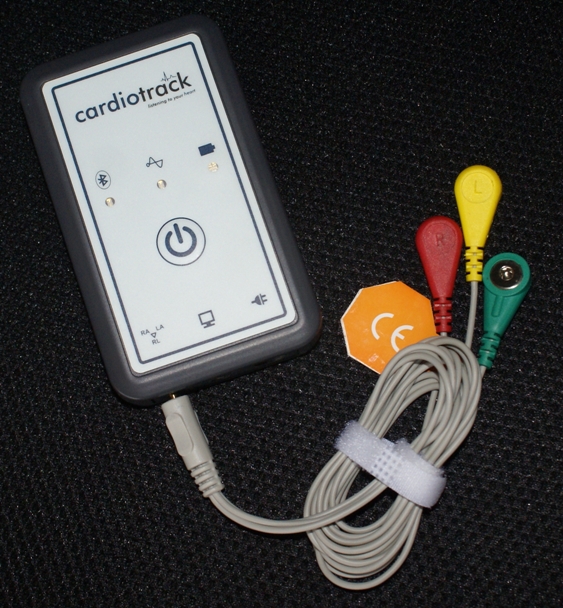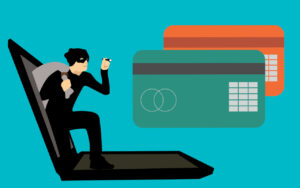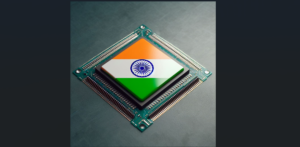Healthcare costs are on a surge. Apparently, medical diagnostic devices constitute a major part of these costs. Considering the rural and suburban population in the country, low cost medical devices would solve many issues. This is what coaxed the Uber Diagnostics team to create Cardiotrack, a network connected Electrocardiogram(ECG).
The Team
Avin Agarwal, co-founder, is a graduate in medical electronics from VIT, Bangalore. He resided in Netherlands for 5 years and came back to India to start the R&D on Cardiotrack. He is a recipient of Bill and Melinda Gates grant for healthcare. Ashim Roy, co-founder, is an alumnus of BITS Pilani, IIT Delhi, and University of Adelaide. After professional career stints across Australia, America and Canada, he returned to India in 2007. He has previously worked on the use of IT for socio-economic development. He has an extensive knowledge of access barriers for rural communities.
About Cardiotrack and the story behind it
Cardiotrack is a network connected Electrocardiogram by Uber diagnostics. It is a low cost device and can easily be installed in public healthcare centers. Since it is network connected, health reports can easily be accessed through tablets, computers and smart phones. Ashim Roy (co-founder, Uber diagnostics), after visiting rural areas in Karnataka, realized that lack of health equipment in rural and suburban areas is a major issue. Public healthcare clinics don’t have ECG facilities in these areas. This lured him to create a low cost device that will enable local healthcare workers to conduct ECG scans.
Cardiotrack is built with 3-leads and is very convenient to use. It provides significant details regarding the condition of a patient’s heart. Its backend data analytic software can detect many cardiovascular and coronary heart diseases. With Cardiotrack, Physicians and healthworkers will easily be able to take an ECG test and immediately refer the patient to a specialist, if required. The units of Cardiotrack are designed in-house while the assembly is outsourced. The android and server software was designed in-house. The team applied for a patent in India.
The key functions of the App include receiving digital ECG data from Cardiotrack via Bluetooth interface and displaying the signals.
It identifies signal peaks and calculates instantaneous and average heart rate. And based on heart rate, it identifies several types of arrhythmia.
Journey so far and Marketing strategies
After 2 years of research and development with St. John’s National Academy of Health Sciences in Bangalore, Cardiotrack was officially lauched in 2014. After the publication of articles in Nextbillion and Madgadget, enquiries have already begun. The startup will be manufacturing 50 units per month, starting May 2014. As for marketing, Ashim explains, “We are using Twitter to create an online presence. In addition, we are trying to reach out to online magazines and blogs to create awareness. We have been communicating with social entrepreneurs in the healthcare sector to spread the word about Cardiotrack and uber Diagnostics.”
Competition, USP and Challenges faced
Consumer mHealth products such as Alivecor and Wello are not suitable for diagnostics because of their design and accuracy. Products like GE, BPL and BioPac are quite expensive and do not provide network storage features. “Uber Diagnostics provides Cardiotrack at no cost to physician or clinic and takes a share of the user fee collected by the physician. There is benefit for all stakeholders. This model brings down the cost of the ECG scan for the patient; physician has additional revenue based on this model; and, uber Diagnostics has a continuous source of revenue to advance its innovation in other areas of diagnostics.”, says Ashim.
Reaching out to investors and banks turned out to be the biggest challenge for Uber diagnostics. Investors want to see a good traction and banks ask for a collateral beforehand. “Ensure that value proposition of the product/ solution and revenue plan have direct linkage. If funding needs are less than Rs 1 Cr, one must fund the activity through friends and family and collateralized debt. Without clear validation of revenue model going to any investor will create distraction from the mission of the company.”, says Ashim.
Funding, Accomplishments and Future plans
The Startup is self-funded and is on a look out for investors. “While we are interested in funding discussions, we will not engage in serious funding discussions until we have shipped the first 100 units and start receiving revenue. This will put us in a better position to find the best funding partner. “, says Ashim. Uber Diagnostics has been shortlisted for DST-Lockheed Martin India Innovation Growth Program in 2014. As for future goals, Ashim elucidates-
- Build alliance partnerships for better product distribution.
- Ship 100 units before end of June 2014.
- Expand automatic diagnosis of more heart related ailments.
TTP’s Take
The initiative is indeed commendable. Cardiotrack will ease the pains of the suburban and rural population. There are more than 100 million people in India who may be considered at risk of various heart related ailments. The startup is helping some of these people with early diagnosis so that they can get timely intervention, which will help them lead a normal life for years to come. TTP wishes Uber Diagnostics all the very best!















